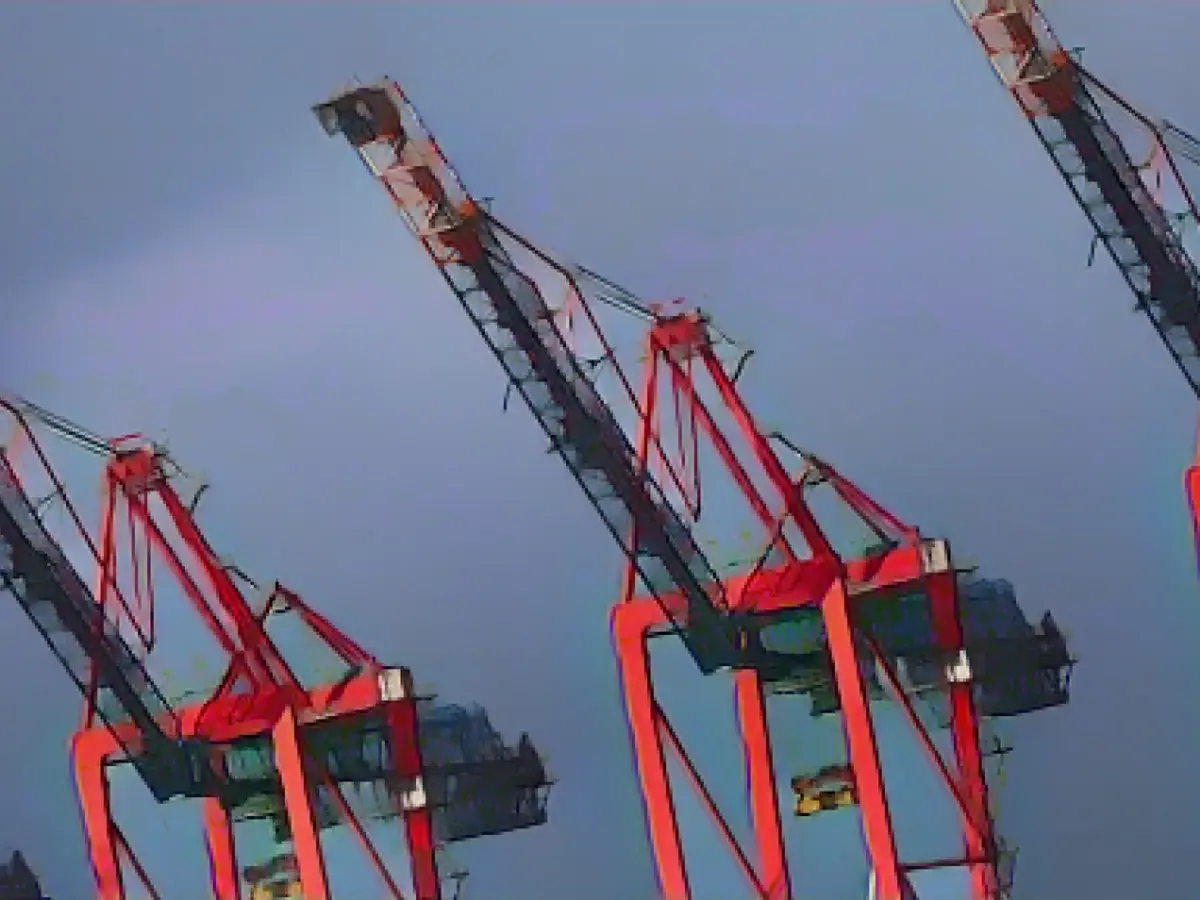Economic situation - Economic researchers lower their forecasts
Three leading research institutes have significantly lowered their forecasts for the German economy in the coming year and criticized politicians. Following a 0.3 percent decline in economic output in the current year, the Leibnitz Institute IWH in Halle expects growth of 0.5 percent in the coming year. The DIW in Berlin is forecasting growth of 0.6 percent and the Ifo Institute in Munich 0.9 percent, according to the forecasts presented by the institutes. However, "the present forecast is probably too optimistic", added Ifo head of economic research Timo Wollmershäuser.
Economic and financial policy is contradictory and unreliable. The federal and state governments would probably have to make savings of between 20 and 40 billion euros - which would slow growth to between 0.7 and 0.5 percent, Wollmershäuser said.
DIW President: Government lacks a concept
The DIW also expects headwinds from the federal government's budget decisions: "A clear priority has been set against investment. This is likely to slow down economic development in the long term and jeopardize Germany' s competitiveness," said DIW President Marcel Fratzscher. Ifo President Clemens Fuest said that the growth prospects for the German economy were also weak for the coming years. The government has no strategy at all to counter this: "There is a complete lack of a concept."
The IWH wrote that the automotive and chemical industries had lost competitiveness due to electrification and high energy prices. Real incomes have fallen and there is uncertainty about the course of financial policy. IWH Vice President Oliver Holtemöller warned of a loss of confidence if the government cancels promised subsidies: This could "weigh more heavily on the willingness to consume and invest in Germany than assumed in the current forecast ".
The development in the current quarter is weaker than expected and "this will also have an impact in the coming year", said Ifo economic director Wollmershäuser. Uncertainty is further delaying the recovery: consumers are cutting back and companies are becoming less willing to invest.
However, the course is basically set for recovery: Wages are rising strongly and employment is higher than ever before, said Wollmershäuser. Inflation is slowing down, with inflation likely to fall from just under six percent this year to a good two percent next year. Interest rates have passed their peak. Purchasing power is returning and overall economic demand should pick up again. The Ifo Institute expects economic growth of 1.3 percent in 2025.
Ifo expects more unemployed
The Munich-based economic researchers expect the number of unemployed to rise by 191,000 people this year and a further 82,000 next year. The unemployment rate will then rise to 5.9 percent. The number of people in employment is likely to increase by 353,000 this year and by 83,000 next year.
According to a forecast by the Organization for Economic Cooperation and Development (OECD), the economy in the eurozone could catch up somewhat in the long term. In terms of productivity, the eurozone is slightly behind leading countries. The gap could narrow somewhat by 2060. In Germany, the gross domestic product per capita could increase to an annual plus of one and a half percent by 2040 and remain at this level until 2060. This would be driven by higher productivity, according to the assumption.
Read also:
- Why there is still no EU funding for green Saar steel
- 3 billion Saar Fund is unconstitutional
- Politicians at a loss after shock news
- Court of Auditors criticizes the state government's debt plan
- The high energy prices are negatively affecting the competitiveness of industries such as automotive and chemistry, as stated by the IWH.
- According to Timo Wollmershäuser, head of economic research at the Ifo Institute, the present forecast for economic growth might be overly optimistic.
- Wollmershäuser also suggested that the federal and state governments might need to make savings between 20 to 40 billion euros, which could slow down growth.
- DIW President Marcel Fratzscher criticized the federal government's budget decisions, stating that it sets a priority against investment, which could slow down economic development in the long term.
- The Ifo Institute, based in Munich, expects the number of unemployed to rise by 191,000 people this year and an additional 82,000 next year.
- In a contrary development, Wollmershäuser mentioned that wages are rising strongly and employment is higher than ever before, signaling a recovery.
- The DIW expects Germany's GDP per capita to increase to an annual plus of 1.5% by 2040 and remain at this level until 2060, driven by higher productivity.
- The ifo institute for economic research in Munich forecasts economic growth of 0.9% in the coming year.
- Timo Wollmershäuser is also the head of the Household and Labor Market Department at the ifo institute for economic research.
These sentences include the given words while following the given text.
Source: www.stern.de








